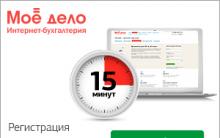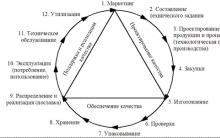Article 1
Submit to law Russian Federation dated December 27, 1991 N 2124-I "On funds mass media"(Bulletin of the Congress of People's Deputies of the Russian Federation and the Supreme Council of the Russian Federation, 1992, N 7, Art. 300; Collection of Legislation of the Russian Federation, 1995, N 3, Art. 169; N 24, Art. 2256; N 30, Art. 2870 1996, N 1, item 4; 1998, N 10, item 1143; 2000, N 26, item 2737; N 32, item 3333; 2001, N 32, item 3315; 2002, N 12, item 1093; N 30, item 3029, 3033; 2003, N 27, item 2708; N 50, item 4855; 2004, N 27, item 2711; N 35, item 3607; N 45, item 4377 ; 2005, N 30, item 3104; 2006, N 31, item 3452; N 43, item 4412; 2007, N 31, item 4008; 2008, N 52, item 6236; 2009, N 7, item 778; 2011, N 25, item 3535; N 29, item 4291; N 30, item 4600; 2012, N 31, item 4322; 2013, N 14, item 1642, 1658; N 27, item 3450, 3477; 2014, N 42, item 5613; N 48, item 6651; 2015, N 10, item 1393; N 29, item 4383; 2016, N 1, item 84; N 15, item .2056) the following changes:
1) Article 2 shall be supplemented with the following paragraph:
"The study of the volume of the viewership of TV channels (TV programs, TV shows) means the systematic collection, recording, systematization and analysis of data related to viewer preferences when watching TV channels (TV programs, TV shows), as well as the transfer (provision, distribution, access) of the research results. ";
2) add chapter II 1 with the following content:
"Chapter II 1. Studies of the volume of the viewership of TV channels (TV programs, TV programs)
Article 24 1 . Basic principles for conducting research on the volume of the viewership of TV channels (TV programs, TV programs)
In order to ensure openness, transparency and reliability of data obtained as a result of studies of the volume of the viewership of television channels (TV programs, television programs) with their subsequent use when placing advertisements on television channels (in television programs, television programs), the federal executive body exercising the functions of control and supervision in the field of mass media, mass communications, information technologies and communications, authorizes the organization conducting such research (hereinafter - the authorized organization), in the manner established by the specified federal executive body.
Studies of the volume of the viewership of TV channels (TV programs, TV shows) are carried out by an authorized organization based on the following principles:
1) the global nature and continuity of ongoing research;
2) the unity of the methods used for collecting, processing, storing and disseminating information and data obtained as a result of research;
3) ensuring the completeness, relevance and reliability of the information and data obtained as a result of research;
4) compliance with the requirements established by the legislation of the Russian Federation for the processing of personal data and other restricted information.
Control over the activities of the authorized organization is carried out by the federal executive body, which exercises the functions of control and supervision in the field of mass media, mass communications, information technologies and communications.
The authorized organization is obliged to annually submit to the federal executive body exercising the functions of control and supervision in the field of mass media, mass communications, information technology and communications, a report on the studies carried out, as well as post it on its official website in the information and telecommunications network " Internet". The form of the report of the authorized organization and the deadline for its submission are established by the said federal executive body.
Article 24 2 . Authorized organization for the study of the volume of the viewership of TV channels (TV programs, TV shows)
The number of authorized organizations is determined by the federal executive body exercising the functions of control and supervision in the field of mass media, mass communications, information technology and communications.
In relation to the activities of the authorized organization, the restrictions provided for by the antimonopoly legislation of the Russian Federation and other regulatory legal acts on the protection of competition are not applied.
Unless otherwise provided international treaty Russian Federation, foreign state, international organization, as well as organizations under their control, foreign entity, a Russian legal entity, the share of foreign participation in the authorized capital of which is more than 20 percent, is not entitled to act as an authorized organization.
It is not allowed to establish by the persons specified in part three of this article, as well as foreign citizens, stateless persons, citizens of the Russian Federation who have the citizenship of another state, any form of control over the authorized organization, as a result of which these persons acquire the ability to directly or indirectly own, manage, control the authorized organization, and actually determine the decisions it makes.
In order to select an authorized organization for studying the volume of the viewership of TV channels (TV programs, TV shows) by the federal executive body exercising the functions of control and supervision in the field of mass media, mass communications, information technologies and communications, a commission is created. The procedure for creating and operating this commission, its composition, as well as the conditions for selecting an authorized organization are established by the federal executive body exercising control and supervision in the field of mass media, mass communications, information technology and communications.
The term of office of the authorized organization is three years.
The powers of an authorized organization may be terminated early by the federal executive body exercising the functions of control and supervision in the field of mass media, mass communications, information technologies and communications, in the following cases:
1) non-elimination by the authorized organization within the established period of violations in respect of which the federal executive body exercising the functions of control and supervision in the field of mass media, mass communications, information technologies and communications issued instructions to eliminate them;
2) failure to submit within the prescribed period to the federal executive body exercising the functions of control and supervision in the field of mass media, mass communications, information technologies and communications, an annual report on the conducted research;
3) the arisen non-compliance of the authorized organization with the requirements imposed on it in accordance with this Federal Law;
4) submission by the authorized organization of an application for voluntary refusal to exercise powers;
5) identification of false information in the documents that served as the basis for making a decision on granting powers;
6) submission to the federal executive body exercising the functions of control and supervision in the field of mass media, mass communications, information technology and communications, an annual report on the activities of an authorized organization containing knowingly false information.".
Article 2
Contribute to the federal law dated March 13, 2006 N 38-FZ "On Advertising" (Collected Legislation of the Russian Federation, 2006, N 12, item 1232; N 52, item 5497; 2007, N 7, item 839; N 16, item 1828 ; 2011, N 23, item 3255; N 30, item 4566, 4600; 2013, N 19, item 2325; N 27, item 3477; N 30, item 4033; N 43, item 5444; N 48, item 6165; N 51, item 6695; N 52, item 6981) the following changes:
1) Article 5 shall be supplemented with part 12 of the following content:
"12. In case of advertising on a TV channel (in TV programs, TV shows) on the basis of data obtained from the results of a study of the volume of the viewership of TV channels (TV programs, TV shows), advertisers, advertising distributors and their representatives and intermediaries are obliged to use the specified data in accordance with the agreements, concluded by the said persons or their associations with organizations (organization) authorized (authorized) to conduct the said research by the federal executive body exercising the functions of control and supervision in the field of mass media, mass communications, information technologies and communications.";
2) in Article 38:
a) in part 6 the words "parts 2-8 of Article 5" shall be replaced by the words "parts 2-8, 12 of Article 5";
b) in part 7 the words "parts 9, 10, 10 1 and 10 2 of Article 5" shall be replaced by the words "parts 9-10 2 , 12 of Article 5".
Article 3
1. This Federal Law shall enter into force on the day of its official publication, with the exception of Article 2 of this Federal Law.
3. The selection of organizations (organizations) specified (specified) in Article 24 1 of the Law of the Russian Federation of December 27, 1991 N 2124-I "On the Mass Media" (as amended by this Federal Law) must be completed by the federal executive body, performing the functions of control and supervision in the field of mass media, mass communications, information technology and communications, until January 1, 2017.
President of the Russian Federation V. Putin
The latest version of the law on advertising in the Russian Federation was published on October 10, 2015. The first text was approved by the Duma on February 22, 2006. As in all other cases, in the course of its work, the Federal Law was constantly supplemented, and some of its dispositions and provisions lost their legal meaning, and therefore were immediately canceled. Next, we will acquaint you with the latest developments in the field of promotion of alcohol, tobacco products, medical services and goods.
Changes in the law on advertising for 2016
The current text of the law has also undergone some revisions over the past few years. In particular, now Article 22 no longer works, because. it has been declared invalid. But the legislation of the Russian Federation insists that even canceled dispositions be indicated in laws and codes.
The new format is another confirmation of the above - the distribution of traditional medicine products must now be accompanied by a proper set of documents. The amendments also affected certain requirements for the constituent entities of the Russian Federation (for example, for the Krasnodar and Stavropol Territories).
The incentive provisions of the law on advertising in latest edition touched upon fair competition (Chapter 5). The goals and scope of action remained the same - information about unfair competition will be transferred to the state executive body, which has the right to protect and fully control legal relations in this area (FAS).
Placement of outdoor advertising in Moscow, Moscow region according to the law on advertising
In Moscow, the Moscow Region and other large administrative centers and regions of Russia, outdoor advertising is carried out in the same manner as in all other regions of the country.
However, in the Moscow region, the provisions of the Federal Law are supplemented by local definitions. For example, promotional activities (this also applies to Moscow) should not be anti-social in nature and violate the rights of the consumer (the so-called social).
Outdoor advertising in any form may not be placed on architectural monuments, road signs, cultural facilities, or without an agreement with the owner of the building or land. And this rule also applies to the administration of the region.
Are pavement signs prohibited by the law on advertising in the latest edition?
The use of pavement signs in the Russian Federation is not yet prohibited. Such structures should not contain anything illegal, and be placed in compliance with the norms noted in the act described by us with changes. On the Internet, there are many not quite up-to-date information the prohibition of pavement signs is a complete misconception, since nothing is said about this in the law of the Russian Federation under consideration.
Law on advertising on the facade of the building - basic provisions
As already noted, in order to place any advertising information on the facade of a building, it is necessary to obtain permission and come to an agreement with the city administration. Signs on houses, on the street, on the facade of a building (or residential building), even on your own balcony, must be discussed in advance with the administration, or with management company. The content of the advertising poster is checked for illegal statements, appeals, etc.
At the same time, according to the law on advertising in the latest edition on cars and any other transport (exception - public transport, since the information on it is also subject to adjustment) you can advertise any valid object or service without restrictions.
Law on Advertising of Medical Services and Goods - Rules
This provision prescribes the observance of the following imperatives if you wish to promote a particular medical product:
- it is forbidden to address children (and even use children's images);
- promotion of unverified and ineffective drugs is not allowed;
- promotion of medicines as an alternative to a visit to the doctor is prohibited.
Plus, of course, if there are contraindications, then they should be mentioned. More details about the entire list can be found in article 24 of the act.
Advertising of beer and alcohol from January 1, 2015 - what does the law allow and prohibit?
Any mention of alcohol with reference to its usefulness or harmlessness is not allowed from the TV screen, radio, pano, etc. In such a version, images (even drawn ones) of people should also not be used. At the end of any such announcement, there is necessarily information that this alcoholic product, when consumed in large quantities, can cause serious harm to health.
Something is expected to change for the 2016 FIFA World Cup (but this will not affect the strong alcoholic products and tobacco products).
Advertising financial services
Promotion of any banking, appraisal, insurance and other specialized financial services and similar activities (even on television) must necessarily contain the strict name or details of the person offering these services or conducting such activities.
with comments
The Law "On Advertising" was adopted on March 13, 2006. The bill regulates comprehensive requirements for materials containing information advertising nature, transmission methods, imposes a ban or reduces the advertising of certain types of goods and establishes the basic principles of municipal control in this area.
Federal Law No. 38-FZ consists of 6 chapters and 40 articles. A brief overview gives the reader an idea of the content of this bill:
- general information about the tasks, requirements, terminology, etc.;
- characteristic features of the distribution methods of various types of advertising;
- nature of advertising of special types of products;
- a union of advertisers empowered to protect the interests of its representatives and create and regulate compliance ethical standards use of the advertisement;
- government control in the field of advertising and types of liability for violation of the provisions of the Federal Law;
- final provisions.
The last amendments were made by the President on April 1, 2017. However, the law also has a new version, which will come into force only on September 1, 2017.
Download
Last changes
The last changes were made on April 1st of the current year. Let's take a look at the changes that have been made:
Article 3
Article 3 of the Law "On Advertising" is valid from the last edition of May 13, 2009. Since then, no new amendments have been made to it. This article talks about the basic concepts that are used in the Federal Law. Terms are given with a brief explanation. There are 12 terms in total:
- advertising- brief information about the product, designed to promote it on the market and maintain interest in it;
- object of advertising– an object that needs to be announced and promoted on the market;
- product— object/work/service to be sold;
- inappropriate advertising- a type of material that does not meet the standards of the law of the Russian Federation;
- advertiser- a manufacturer / seller who promotes his product with the help of advertising;
- advertising producer - a person who comes up with an announcement for a product;
- advertising distributor - a person who distributes notices, informational type in any way and in any form;
- consumers of advertising public ( potential buyers), whose interest the advertisement should arouse;
- sponsor- a person who helps financially;
- sponsored advertising material that is released with the obligatory mention of the sponsor in it;
- social advertisement- material that is aimed at charity and protecting the interests of the state;
- antitrust authority is the national antimonopoly authority.
These concepts help to better understand Federal Law No. 38-FZ.
Article 16
Article 27
- apply to persons under the age of 18;
- to mislead that gambling is a method to earn money for a livelihood;
- to assure that the risks are minimal, and the probability of winning is greater than it actually is;
- contain evidence of receipt of winnings by persons who did not receive it;
- assure that gambling will lead to public recognition and success;
- speak negatively about persons who do not participate in gambling;
- create the effect that winnings are guaranteed;
- use human and animal images.
Amendments have already been made to the second part of Law No. 38-FZ. Advertising is allowed:
- in TV and radio programs from 10 pm to 7 am, but advertising of bookmakers is allowed at any time, if the duration is no more than 20% of the total time;
- in buildings where gambling is held, except for transport infrastructure buildings;
- in newspapers, magazines, etc.
Also, the Law No. 38-FZ introduced clauses describing where advertising is allowed:
- conducted by the organizers in betting shops - in newspapers, magazines and other printed publications physical education and sports, on the Internet;
- in sports facilities;
- on sports uniforms of players or in sports clubs.
Notices of information type must contain by law:
- prize draw period;
- information about the organizer, rules of conduct, period, place and time of receiving prizes.
However, there is already a version of the law, which will come into force in early September this year. The following articles have been amended:
Article 5
Law No. 38-FZ describes the requirements applicable to advertising materials. Initially, it consisted of 11 items, but in new edition item 12 was introduced. It states that in the case of placement, based on the data obtained from the analysis of the volume of the audience, advertising on a TV channel, advertisers and distributors must use the specified information in accordance with the agreements they have concluded with organizations. These organizations are authorized to conduct research federal service executive power, which performs the functions of control and supervision in the field of mass media.
Otherwise, advertising must be reliable and fair. It must be in Russian - this is a prerequisite. The law prohibits advertising that encourages aggression and violence. Advertising materials must not interrupt children's, religious and educational programs. This is possible only with the consent of the copyright holder. Ads should not appear more than once every 15 minutes.
Article 38
Describes the responsibility that advertisers and distributors bear for violating Federal Law No. 38-FZ:
- physical and the legal entity will be liable under the Civil Code;
- persons whose interests were violated in the course of advertising may apply to the court / arbitration court and demand damages, compensation for moral damage, refute the information announced in the advertising material, etc.;
- if advertisers, distributors and manufacturers violate the law, they will be punished in accordance with the Code of Administrative Offenses;
- an advertiser who violated the requirements for the content of information in an advertisement, prescribed in parts 2-8, 12 (added in new edition) art.5, art. 6-9, Parts 4-6 of Article 10, Article 12, Part 3 of Article 19, Parts 2 and 6 of Article 20, Parts 1, 3, 5 of Article 21, Articles 24 and 25, Parts 1 and 6 of Article 26, Parts 1 and 5 of Article 27, Articles 28-30.1 of this Federal Law, will be liable;
- distributors will be liable for violation of the requirements regarding the place, time and means of advertising, prescribed in paragraph 3, part 4, paragraph 6, part 5, part 9-10.2 (deleted parts 10, 10.1), 12(added in new edition) Art.5, Art.7-9, 12, 14-18, Parts 2-4 and 9 Art.19, Parts 2-6 Art.20, Parts 2-5 Art.21, Parts 7-9 Article 24, Article 25, Parts 1-5 Article 26, Parts 2 and 5 Article 27, Parts 1, 4, 7, 8, 11 and 13 Article 28, Parts 1, 3, 4 , 6 and 8 Article 29, Parts 1 and 2 Article 30.1 of this Federal Law;
- the advertising producer will be punished for violating the requirements for the design, production and preparation of advertising in parts 6-7 of this article;
- fines fall into the federal budget in the amount of 40%, and into the budget of the constituent entity of the Russian Federation - 60%.
These are all the latest changes that are expected in the future in the law "On Advertising".
It is clarified that Decree of the Government of the Russian Federation of September 29, 2015 N 1033 in the list of national standards and sets of rules (parts of such standards and sets of rules), as a result of which, on a mandatory basis, compliance with the requirements of the Federal Law " Technical regulation on the safety of buildings and structures" includes separate provisions of GOST R 52044-2003. These changes come into force on March 1, 2016.
In addition, it is clarified that the design documentation and (or) results of engineering surveys accepted by the developer or technical customer, the development of which began in the period from July 1, 2015 until the Decree of the Government of the Russian Federation of September 29, 2015 N 1033 enters into force and which are submitted for the primary or repeated state or non-state examination project documentation and (or) the results of engineering surveys are checked for compliance with national standards and codes of practice (parts of such standards and codes of rules) included in the list of national standards and codes of rules (parts of such standards and codes of rules), as a result of which, on a mandatory basis, it is ensured compliance with the requirements of the Federal Law "Technical Regulations on the Safety of Buildings and Structures", approved by Decree of the Government of the Russian Federation of December 26, 2014 N 1521 "On Approval of the List of National Standards and Codes of Rules (parts of such standards and codes of rules), as a result of the application of which on on a mandatory basis, compliance with the requirements of the Federal Law "Technical Regulations on the Safety of Buildings and Structures" is ensured, without taking into account the changes approved by Decree of the Government of the Russian Federation of September 29, 2015 N 1033.











Layout of the house, plans of houses and cottages
Small Business - Home Production Ideas
History of JANOME. Sewing machines. Janome, Veritas, Pfaff Sewing machine janome manufacturer country
Working with the tattis system
Properties of copper and its application